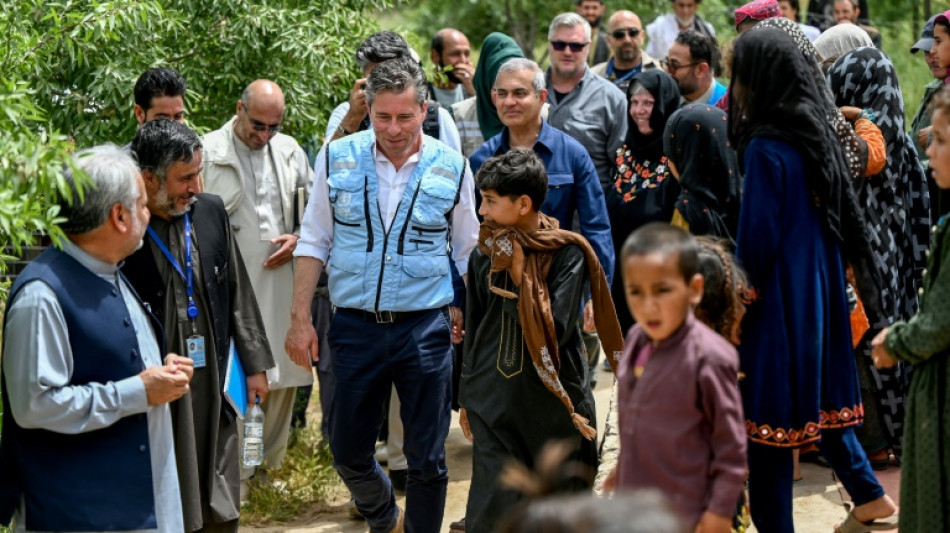
-
 EU wants key sectors to use made-in-Europe AI
EU wants key sectors to use made-in-Europe AI
-
De Minaur, Rinderknech through to Shanghai quarter-finals

-
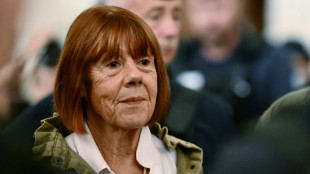 Gisele Pelicot says 'never' gave consent to accused rapist
Gisele Pelicot says 'never' gave consent to accused rapist
-
Thousands stranded as record floods submerge Vietnam streets
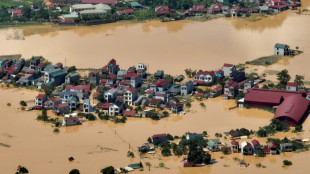
-
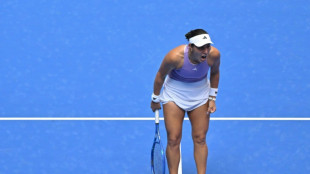 Sabalenka battles to keep Wuhan record alive, Pegula survives marathon
Sabalenka battles to keep Wuhan record alive, Pegula survives marathon
-
Trio wins chemistry Nobel for new form of molecular architecture
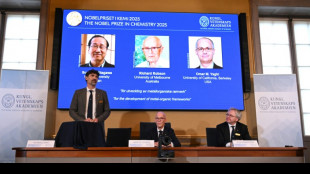
-
 Tarnished image and cheating claims in Malaysia football scandal
Tarnished image and cheating claims in Malaysia football scandal
-
Family affair as Rinderknech joins Vacherot in Shanghai quarters

-
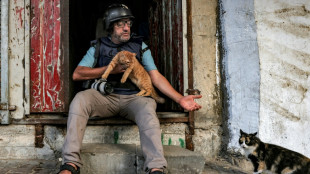 New documentary shows life in Gaza for AFP journalists
New documentary shows life in Gaza for AFP journalists
-
Tennis stars suffer, wilt and quit in 'brutal' China heat
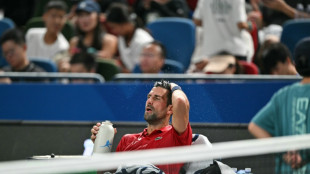
-
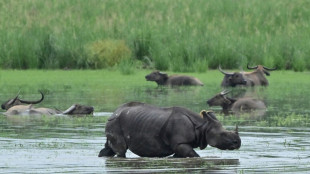 Wildlife flee as floods swamp Indian parks
Wildlife flee as floods swamp Indian parks
-
Record flooding hits Vietnam city, eight killed in north
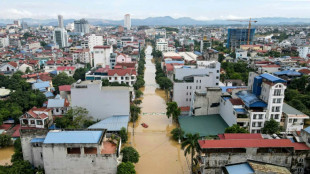
-
 Battling cancer made Vendee Globe win 'more complicated', says skipper Dalin
Battling cancer made Vendee Globe win 'more complicated', says skipper Dalin
-
England, Portugal, Norway closing in on 2026 World Cup

-
 Child protection vs privacy: decision time for EU
Child protection vs privacy: decision time for EU
-
Bear injures two in Japan supermarket, man killed in separate attack

-
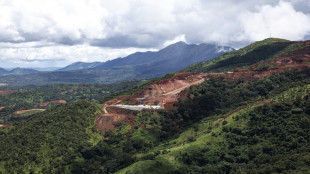 In Simandou mountains, Guinea prepares to cash in on iron ore
In Simandou mountains, Guinea prepares to cash in on iron ore
-
Morikawa says not to blame for 'rude' Ryder Cup fans

-
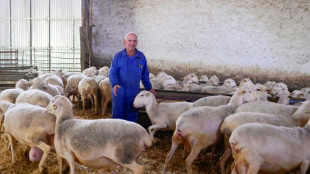 Far right harvests votes as climate rules roil rural Spain
Far right harvests votes as climate rules roil rural Spain
-
'Return to elegance': highlights from Paris Fashion Week

-
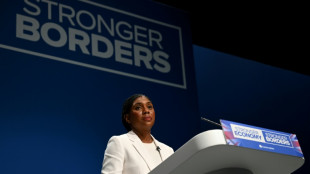 Britain's storied Conservative party faces uncertain future
Britain's storied Conservative party faces uncertain future
-
New Zealand's seas warming faster than global average: report

-
 Snakebite surge as Bangladesh hit by record rains
Snakebite surge as Bangladesh hit by record rains
-
Yankees deny Blue Jays playoff sweep as Mariners beat Tigers

-
 Australia police foil 'kill team' gang hit near daycare centre
Australia police foil 'kill team' gang hit near daycare centre
-
US, Qatar, Turkey to join third day of Gaza peace talks in Egypt
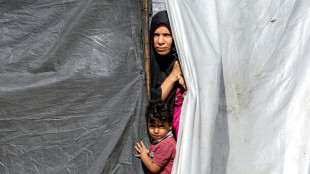
-
 Gold tops $4,000 for first time as traders pile into safe haven
Gold tops $4,000 for first time as traders pile into safe haven
-
Indian garment exporters reel under US tariffs
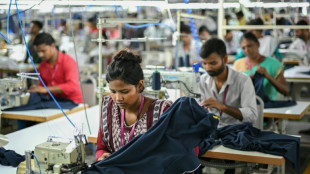
-
 NBA back in China after six-year absence sparked by democracy tweet
NBA back in China after six-year absence sparked by democracy tweet
-
Energy storage and new materials eyed for chemistry Nobel
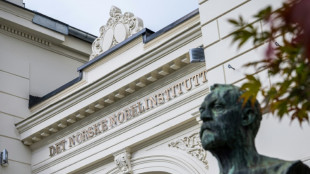
-
 Trump unlikely to win Nobel Peace Prize, but who will?
Trump unlikely to win Nobel Peace Prize, but who will?
-
Qatar, Turkey to join third day of Gaza peace talks in Egypt
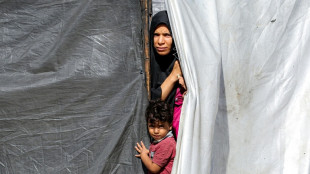
-
 Study finds women have higher genetic risk of depression
Study finds women have higher genetic risk of depression
-
Dolly Parton's sister calls for fan prayers over health issues

-
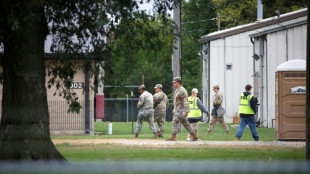 On Trump's orders, 200 troops from Texas arrive in Illinois
On Trump's orders, 200 troops from Texas arrive in Illinois
-
Two bodies found, two missing after Madrid building collapse
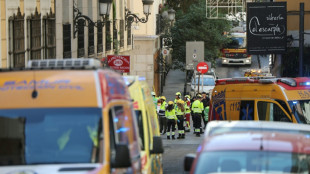
-
 Panthers raise banner as NHL three-peat bid opens with win
Panthers raise banner as NHL three-peat bid opens with win
-
Nobel physics laureate says Trump cuts will 'cripple' US research
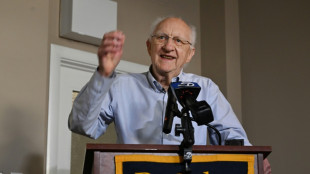
-
 UFC star McGregor suspended 18 months over missed drug tests
UFC star McGregor suspended 18 months over missed drug tests
-
Trump talks up Canada trade deal chances with 'world-class' Carney
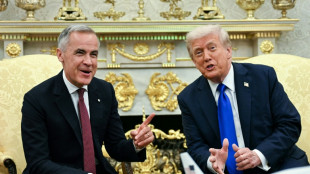
-
 Ecuador president unharmed after apparent gun attack on motorcade
Ecuador president unharmed after apparent gun attack on motorcade
-
Lyon exact revenge on Arsenal, Barca thrash Bayern in women's Champions League

-
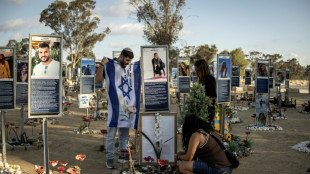 Trump says 'real chance' to end Gaza war as Israel marks attacks anniversary
Trump says 'real chance' to end Gaza war as Israel marks attacks anniversary
-
Gerrard brands failed England generation 'egotistical losers'

-
 NFL fines Cowboys owner Jones $250,000 over gesture to fans
NFL fines Cowboys owner Jones $250,000 over gesture to fans
-
Bengals sign veteran quarterback Flacco after Burrow injury

-
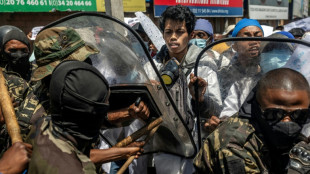 New prime minister inspires little hope in protest-hit Madagascar
New prime minister inspires little hope in protest-hit Madagascar
-
Is Trump planning something big against Venezuela's Maduro?

-
 EU wants to crack down on 'conversion therapy'
EU wants to crack down on 'conversion therapy'
-
French sex offender Pelicot says man who abused ex-wife knew she was asleep
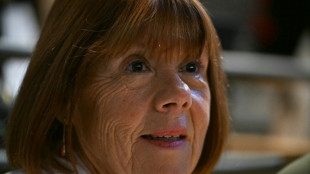

Despite war's end, Afghanistan remains deep in crisis: UN relief chief
Climate change, women's rights, displacement, poverty: Afghanistan remains a priority as it faces overlapping crises, the UN's relief chief Tom Fletcher told AFP on Wednesday, deploring "brutal" aid budget cuts.
"We've identified 17 crises across the world where our engagement is most urgent, most vital. Afghanistan is high on that list," said the United Nations Under-Secretary-General for Humanitarian Affairs in an interview with AFP during a visit to northern Afghanistan's Kunduz province.
Fletcher's visit comes after US President Donald Trump's decision to slash foreign aid sent shock waves across the globe.
Washington had been the top donor to Afghanistan, having spent $3.71 billion in humanitarian and development aid since the Taliban returned to power in 2021 and imposed a severe interpretation of Islamic law.
"We're in a period when we're having to massively prioritise, take brutal choices... literally life and death choices, about where to operate and which lives to save," Fletcher said.
"You can look at Sudan for the scale of the crisis, you can look at Gaza for the intensity, the ferocity of the killing there," he added. "Afghanistan is a different kind of challenge but it's a huge challenge nonetheless."
Climate change is hitting the Central Asian country "particularly hard" and it "will drive the needs even more than conflict will in the period ahead", he said.
"You've got that combined with the existing levels of poverty and these decades of instability and conflict."
- 'Dialogue' on women's rights -
The situation of women's rights in the country adds to the layers of a "building up of crisis upon crisis", Fletcher added.
The Taliban authorities have imposed restrictions on women that the UN has denounced as "gender apartheid".
Women and girls have been banned from education beyond primary school as well as many sectors of work and public spaces.
"I think this particular dynamic around women and girls is something that can surely cut through to even the most hard-hearted and cynical transactional politician right now," Fletcher said.
After meetings with Taliban officials this week in the capital Kabul and the Taliban heartland of southern Kandahar, Fletcher noted the need for "dialogue in order to try and change the mindset" on women's rights.
"It's encouraging to me that people were willing to have the conversation and not have it in a purely defensive way," he said.
Afghan women are particularly affected by humanitarian aid cuts, especially in the health care sector, which has been heavily dependent on foreign support.
In Afghanistan, maternal mortality rates of 620 per 100,000 births and infant mortality rates of 55 children under five per 1,000 births are among the highest in the world, according to UNICEF.
"I challenge anyone who celebrates aid cuts to sit with a woman who has lost her child because she had to cycle for three hours while in labour to get the care that she needed," said Fletcher, after having met Afghan women at a mobile health centre.
- 'Humanitarian reset' -
When Amina, a 28-year-old housewife, fell ill, she walked for an hour and a half to reach the centre in the rural countryside.
"There are no clinics, no doctors who come here, nothing nearby. We don't even have electricity," she told AFP.
The small facility, supported by the local non-governmental organisation JACK and UN agencies, is under strain.
Already overwhelmed, it now has to accommodate patients from US-funded clinics that had to close, as well as Afghans who have been expelled from neighbouring Pakistan since early April.
"The reality with the cuts was that we didn't see the impact straight away," Fletcher said.
"It's now that we're really coming to understand how brutal these cuts are going to be."
Under these conditions, he said, "we're in the process now of a massive humanitarian reset".
"We've got to rediscover that sense of coexistence and care for the most vulnerable people on the planet. I don't think that's gone away just because of a few election results," he said.
"I don't think you can put tariffs on humanitarian action," he added, referring to the trade war recently launched by Trump.
A.Ruegg--VB
